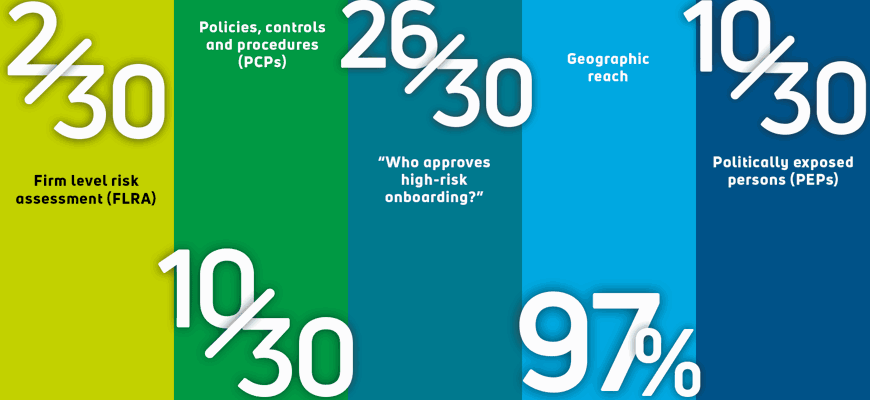TCSP: themes from the review

What is a thematic review, and why start using it now?
Thematics are a focused research method which can use both quantitative and qualitative data to measure behaviours. They serve as a useful tool to both inform the Society of trends in the profession but also, importantly, to inform those under our supervision about how they can ensure their compliance with the Money Laundering Regulations as well as the Society’s practice rules.
Why did you choose trust and company services provision (TCSP) as the focus of your first thematic review?
The UK National Risk Assessment published by HM Treasury, initially in 2015, highlighted specific trust and company services as being of an inherent high risk to criminal exploitation. Their assessment in 2017 remains the same. The Society acknowledged this risk and proactively sought to address it by recruiting an AML auditor with TCSP-specific experience. One of my main objectives was to get a clearer understanding of how firms conduct themselves when delivering such services, and also to inform firms of what we expect from them when acting as a TCSP. However, as highlighted in the report, the principles of having effective systems and controls in place when delivering regulated services applies regardless.
What key themes did the report reveal?
Stage one of the review – a questionnaire issued to 30 firms – produced some encouraging data. However, when we took four of those firms to stage three, we found that not all firms fully considered and acknowledged trust and/or company services in their firm level risk assessment and policies, controls and procedures. There were issues with producing AML-specific files relating to client matters and relationships in a timely manner, and instances of participating firms failing to monitor client relationships and to document their knowledge of the client. It is important to stress that the size of the cohort was relatively small and may not be indicative of the profession as a whole; however, firms should consider the findings of the report and work to ensure that their own internal controls are effective to prevent and forestall their services from use and abuse. One file review revealed that fee earners were not aware that provision of a registered office service to clients is in scope of the regulations. Other firms were not conversant of their statutory requirements when offering this service.
Why is it so important that Scottish law firms have robust AML policies, controls and procedures in place?
It is crucial that all firms, regardless of their size, take the time to consider all in-scope services offered to their client base and adhere to effective policies, controls and procedures (PCPs) if they are to fulfil their obligations and comply with the regulations.
But carefully considered and drafted PCPs aren’t simply a statutory requirement. They act as an invaluable reference point and source of support for legal staff providing clear direction on how they should conduct themselves in particular situations. If planned, used and maintained correctly, sufficiently robust PCPs can help to mitigate the risks of a firm’s legitimate legal services being abused for criminal purposes.
What’s next? Do you plan to use thematic reviews again?
We are still working to determine the theme and timing of the next thematic review. However, it is our intention to increase the number of firms selected to participate in the next review, to give us more comprehensive, detailed data which, in turn, will feed into our risk-based approach to supervision and the insight we can provide to firms. We will keep our members up to date with progress and details of the theme in advance of firm selection.






